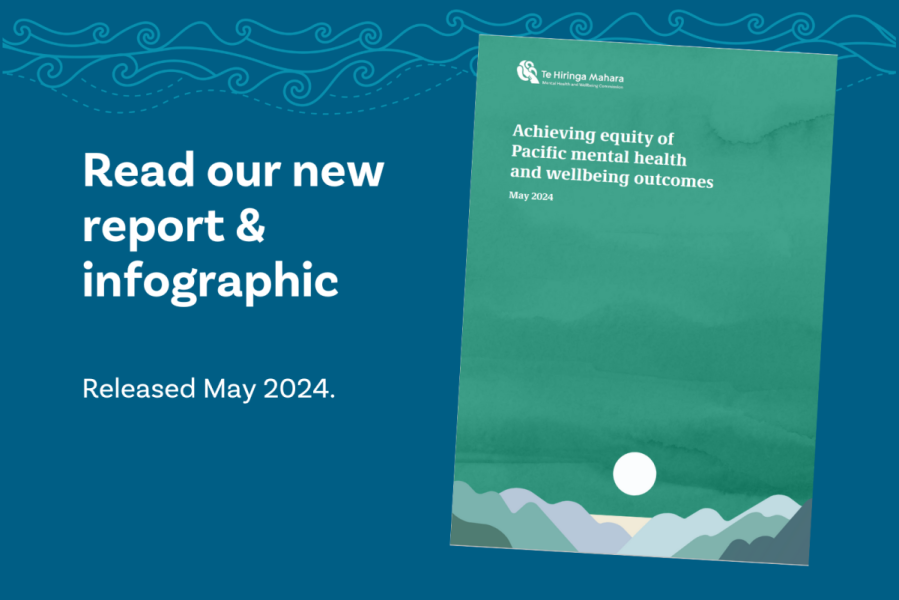New report highlights Pacific wellbeing challenges
New report highlights Pacific wellbeing challenges

(Picture caption: A new report, Achieving equity of Pacific mental health and wellbeing outcomes, offers a snapshot of New Zealand’s Pacific peoples state of wellbeing.)
A new report from the - Te Hiringa Mahara - Mental Health and Wellbeing Commission shows more should be done to improve mental health and wellbeing outcomes of Pacific peoples in New Zealand.
Achieving equity of Pacific mental health and wellbeing outcomes offers a snapshot of New Zealand’s Pacific peoples state of wellbeing.
Across almost every measure of wellbeing, Pacific peoples face greater challenges than the rest of the population.
Report lead Dr Ella Cullen, Te Hiringa Mahara Director Wellbeing System Leadership and Insights, says Pacific peoples do not have access to the essential building blocks they need to ensure they can thrive in Aotearoa.
“There are ongoing barriers to equitable access to education opportunities, appropriate housing, and adequate incomes,” Dr Cullen says.
“We know that improved mental health and wellbeing for people is driven by things that are out of their control.
“One example is adequate household income – Pacific young people are putting their learning on hold to support their families due to rising cost of living.
“We can expect this situation to worsen if left unaddressed.”
A continued focus on mental health and wellbeing outcomes for Pacific peoples is desired, Dr Cullen adds.
“This will require increased and concerted effort across all government agencies, and ongoing leadership from the Ministry for Pacific Peoples and Pacific leaders.”
Despite these challenges, however, the report also mentions Pacific families are a continued source of wellbeing for Pacific peoples.
The report recommends evidence-based solutions, starting with increasing and resourcing Pacific-led services that are better equipped to support people and their families with their immediate mental health and wellbeing needs.
Giving resources to Pacific community organisations is one solution to addressing the gap between mental health and wellbeing outcomes for Pacific peoples in comparison to the rest of Aotearoa.
“Holistic on-the-ground support is what makes the difference for Pacific families – we need to make it easier for people to access a range of services from organisations embedded in Pacific cultures,” Dr Cullen says.
The extension of Whānau Ora to Pacific communities provides an example.
These services work with families to identify and achieve their ambitions for education, health, financial freedom, community connection, and community resilience.
A major constraint on delivering effective services, is improving how they are funded.
Introducing a contracting model built on trust will ensure Pacific organisations can meet the diverse needs of their communities.
“New Zealand needs to set Pacific people up for success, and that starts with addressing the root causes of mental health and wellbeing,” Dr Cullen says.
“Our reputation as a land of opportunity, and our future economy, depends on it.”
Visit the Te Hiringa Mahara – Mental Health and Wellbeing Commission website to read the report and infographic.
